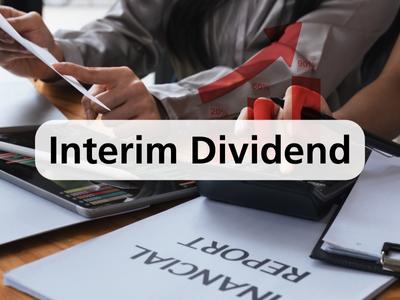Understanding Interim Dividend
 An interim dividend is a payment made to shareholders before a company’s annual general meeting (AGM) and the finalisation of its full-year financial results. This payment is usually based on the company’s provisional or unaudited financial statements and is typically smaller than the final dividend, which is declared after the company’s year-end results are complete.
An interim dividend is a payment made to shareholders before a company’s annual general meeting (AGM) and the finalisation of its full-year financial results. This payment is usually based on the company’s provisional or unaudited financial statements and is typically smaller than the final dividend, which is declared after the company’s year-end results are complete.
Interim dividends allow firms to periodically reward shareholders. Unlike bonds, which provide fixed interest rates and do not benefit from share price appreciation, stocks can yield capital gains from share price increases and dividend payouts. Thus, interim dividends allow shareholders to receive a return on their investment before the company’s full financial year concludes.
The company’s board of directors is responsible for declaring an interim dividend, and this decision does not require shareholder approval. However, the amount and timing of these dividends depend on the company’s current financial situation and its future outlook.
By distributing interim dividends, companies provide immediate value to shareholders, offering them a share of the profits before finalising its entire year’s performance.

